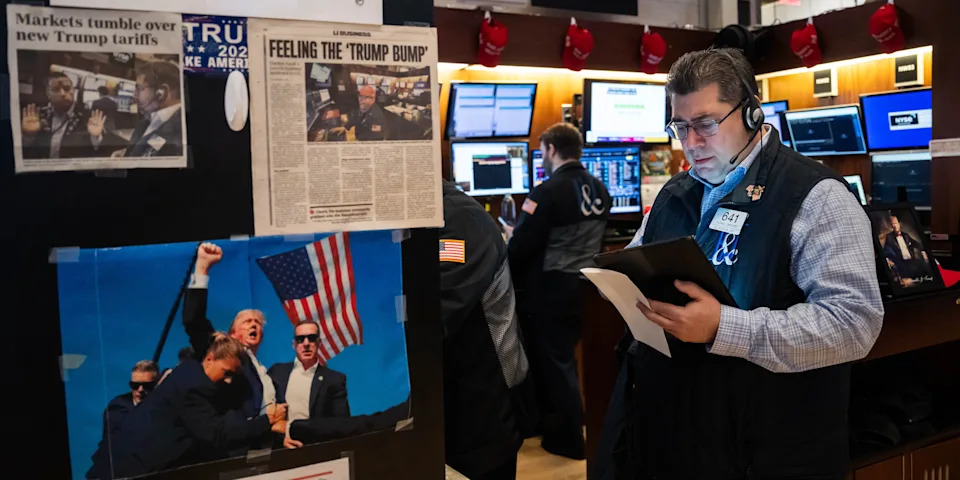
President Trump is back at it again.
No, he's not fanning the flames of a global trade war , nor trying to impose his will on the Russia-Ukraine conflict .
He's instead on social media trying to absolve himself from blame for a stock market that's tumbled nearly 10% since he took office.
It's a familiar sight for many. After all, since his first term, Trump has made a habit of taking credit for stock performance when markets are soaring, and regularly passed the buck when it's tanked.
Business Insider markets editors Joe Ciolli and Max Adams are here to set the record straight on how much impact a president can really have.
Joe: I've always balked at the notion that the president is largely responsible for what's happening in stocks at a given time. I think the Federal Reserve is most directly impactful, which is why Trump is so adamant about having control over monetary policy and interest rates.
There's also the added impact of extraneous events like the COVID pandemic, which led to historically sharp losses and gains that were entirely unrelated to Trump.
Trump has been especially disingenuous about it over time. If his personal logic is that he's responsible for any stock strength, that should apply to weakness as well.
Max: That's true, and it's also more disingenuous now because it is pretty obvious that Trump and the administration are driving the volatility. You only needs to look at the S&P 500 chart in the two days after he announced tariffs to see that.
There's a credible argument to be made that Donald Trump's presidency so far is more impactful for the stock market than past presidents. That goes for the upward momentum, as well. Look at what happened when he paused tariffs.
Joe: Trump being undeniably responsible for the volatility in 2025 definitely complicates my view that the Fed is the main game in town. But even then, a second-order reason why people are afraid of tariffs is because — in a stagflationary scenario — the Fed can't save the day.
Max: This brings us back full circle to the idea that Trump is actually more responsible for stock losses than other presidents. He's potentially creating the situation that would tie the Fed's hands. Markets have been getting more concerned about stagflation, and today's data points that Trump is responding to in his Truth Social post are reinforcing that narrative.
Joe: It boils down to the fact that Trump is attempting to make adjustments to the global trade order that are far more aggressive than what anyone's tried before. And he did it almost immediately after taking office. Historically volatile behavior leads to historically volatile markets — and outsized presidential impact relative to history.
Read the original article on Business Insider

